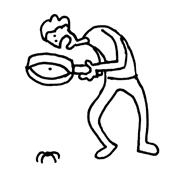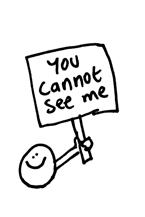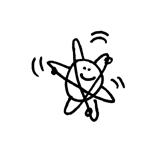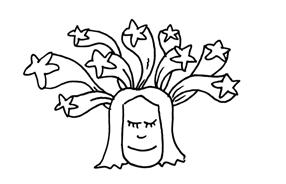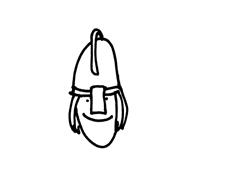ΈΝΑ ΜΈΓΑΛΟ ΈΥΧΑΡΙΣΤΏ
Mary Erskine
Corstorphine Primary
Stewart’s Melvill Junior School,
Cleobury Mortime Primary School,
Grange Primary,
Woodland
Furzedown Primary School,
Raysfield Infants’ School,
The Mulberry Primary School,
Shottermill Junior School,
Grange Primary School,
Stewart’s Melville,
Woodland Grange Primary
chance of finding one would be to go to the least explored part of our planet – the very deep sea. You can only go down there in special deep-sea submarines. They have to be extremely strong to withstand the huge pressure of the water. And of course it is pitch black down there, so you would have to have powerful lights to do your searching.
You might get a glimpse of something in their beams, but unless you could catch it and examine it in detail, you could not be certain that it was a new species. And catching animals down there is a very difficult job, needing very specialised equipment. But I am sure there are still monsters down there that no one has ever seen before.
What are atoms?
Marcus Chown
author of books about space and the universe
Atoms are the building blocks out of which everything is made: you, me, trees, even the air we breathe. You cannot see atoms because they are very small. It would take ten million laid end to end to stretch across the dot of the exclamation mark at the end of this sentence!
But if you could see an atom, you would notice something very odd indeed. They are not made of much at all. In fact, they are pretty much all empty space.
At the centre of an atom is a tiny speck of matter called a nucleus. Circling it, like planets around the Sun, are even tinier specks of matter known as electrons. But in between the nucleus and the electrons is a lot of empty space. It means that you and I – since we are made of atoms – are mostly empty space.
In fact, there is so much empty space inside atoms that if you were to squeeze out all the empty space from all the atoms in all the people in the world, they would fit in the volume of
Μιράντα
dreams are a way for the mind to rearrange and tidy itself up after the activities of the day.
Why are dreams sometimes scary? During the day, things may happen that frighten us, but we are so busy we don’t have time to think properly about them. At night, while we are sleeping safely, we can give those fears a run around. Or maybe something you did during the day was lovely but you were in a hurry and didn’t give it time. It may pop up in a dream. In dreams, you go back over things you missed, repair what got damaged, make up stories about what you’d love, and explore the fears you normally put to the back of your mind.
Dreams are both more exciting and more frightening than daily life. They’re a sign that our brains are marvellous machines – and that they have powers we don’t often give them credit for, when we’re just using them to do our homework or play a computer game. Dreams show us that we’re not quite the bosses of our own selves.
ΥΠΑΡΧΟΥΝ ΈΞΏΓΗΙΝΟΙ;
Why do we speak English?
Professor David Crystal language expert
If you travel some distance from where you live, you’ll notice that people don’t speak in the same way as you and your friends do. You’ll hear different sounds – what we call differences of accent. And you’ll also hear different words and ways of making sentences – what we call differences of dialect.
Accents and dialects show where you come from. People say such things as ‘He sounds Welsh,’ or ‘She sounds as if she comes from London.’ People from other countries have accents and dialects too. You can tell that someone is from America or Australia by the way they speak.
Accents and dialects change when people move from one place to another. They leave behind the way they used to speak, and start speaking in a new way. This is what happened thousands of years ago, as people began to explore our planet. When they settled in a new place, they would gradually develop new ways of speaking, and over a long period of time their speech would sound so different that if they went back to
you’d recognise quite a few words that are still used in Modern English, such as house, bed, child and friend. And if you said to an Anglo-Saxon warrior, ‘I live in that street,’ he’d know what you were talking about, for all the words in that sentence have been in English for over a thousand years.
ΓΙΑΤΙ

